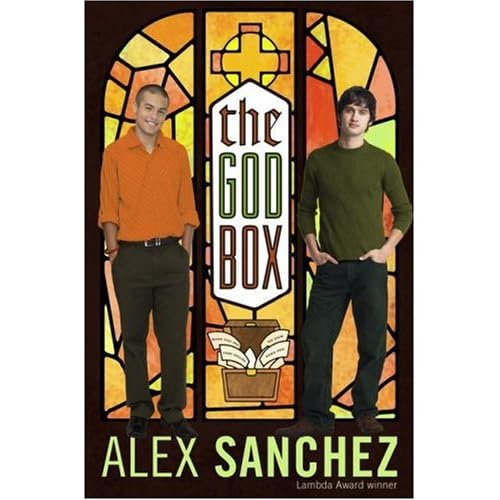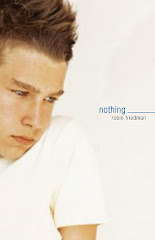For the guys working at legendary comics publisher Fantagraphics, it's another story. I asked some of them to share what titles they read when they were younger and why:
Eric Reynolds (self-described "Official Shill" for Fantagraphics)

Like A Velvet Glove Cast in Iron, by Daniel Clowes: This began in the pages of "Eightball" around the same time Lynch's Blue Velvet came out, and it had a similarly powerful effect on my teenaged brain, convincing me of hidden meanings lurking under the surface, encouraging numerous re-readings, inspiring me to give a "closer" reading to it than perhaps anything I'd ever read up to that point.
Buddy Does Seattle, by Pete Bagge: Growing up in suburban Orange County, Peter Bagge's Buddy Bradley stories were so foreign to my own experience that they might as well have been set in Communist China. Which is why they were so alluring; I moved to Seattle within about three or four years of HATE's debut. Everyone else was moving there for grunge, but I moved for the comics.
Frank, by Jim Woodring: Frank is to teens and adults what Yellow Submarine is to the under-10 set. Absolutely magical and transportive.

Skin Deep/El Borbah/Big Baby, by Charles Burns: I've always wanted to draw more like Charles Burns than any other cartoonist. Those thick, black brushstrokes are just about as perfect as perfect gets. He could draw anything and make me want to get a tattoo of it.
Love & Rockets, by The Hernandez Bros.: Still the greatest comic book series of all-time. [Make sure you check out Fantagraphics' helpful "How to Read Love & Rockets" guide. --Paul]
Mike Baehr (Marketing)
Ghost World, by Daniel Clowes: Even though the protagonists are girls, I could still relate to their slanted, ironic and funny reactions to the absurdity of the world around them. The movie's great, too.
Jacob Covey (Art Director)
I read Velvet Glove in high school and totally didn't get it. It freaked me out. It was like talking to someone who was speaking English with all the words rearranged. I didn't get that readers could be expected to work at reading. Or just enjoy the ride.
 Jason's Sshhhh! was the book that really changed my reading of comics. I could read that book as a participant. It's all wordless, using symbols as the primary device for communicating the story. It's pure narrative art and can be read, quite literally, by anyone who has eyeballs. Everything Jason does is just good storytelling. [And FYI, Sshhhh! is unfortunately long out of print, but Fantagraphics is going to reprint it in December. --Paul]
Jason's Sshhhh! was the book that really changed my reading of comics. I could read that book as a participant. It's all wordless, using symbols as the primary device for communicating the story. It's pure narrative art and can be read, quite literally, by anyone who has eyeballs. Everything Jason does is just good storytelling. [And FYI, Sshhhh! is unfortunately long out of print, but Fantagraphics is going to reprint it in December. --Paul]Nowadays I finally get the genius of Jim Woodring who does something similar to Jason with the Frank stories. Those stories are wordless, dream-like, and profound. It's easy to see why people think it reads like an LSD trip.
For years the only comic strip I would read was Maakies. It's gallows humor drawn by the hand of God. A stark, florid style with alternately profound and utterly offensive gags. A drunk crow that routinely commits suicide isn't exactly kid friendly but every kid should have it hidden in their dresser. It's honest-to-goodness genius at work. The new Cartoon Network show based on Maakies will be a big hit but it won't do justice to the comic.
Jason Miles (Sales Manager)
Like A Velvet Glove Cast in Iron, by Daniel Clowes: Made me respect the animalistic dark hatred of the human sub-concious.
 Frank, by Jim Woodring: Discovering Frank by Jim Woodring as a pre-teen was a smart moment for me. I no longer felt alone and it kept me warm at night with oodles of mystery and purple, ambiguous fear.
Frank, by Jim Woodring: Discovering Frank by Jim Woodring as a pre-teen was a smart moment for me. I no longer felt alone and it kept me warm at night with oodles of mystery and purple, ambiguous fear. 
















 I was an apathetic student in high school. Algebra was my regular nap period. Instead of reading The Return of the Native like I should have, I wasted my time pouring over The Amazing Spiderman and Uncanny X-Men until I’d memorized every POW! and SNIKT!
I was an apathetic student in high school. Algebra was my regular nap period. Instead of reading The Return of the Native like I should have, I wasted my time pouring over The Amazing Spiderman and Uncanny X-Men until I’d memorized every POW! and SNIKT! Then there’s symbolism. By necessity, comics depend on signifiers to identify their characters, the silhouetted bat on Batman’s chest or the Joker’s white, green, and purple color scheme. The symbols aren’t static, though. They play off one another and pop up in unexpected places. At their best, they become a language of images.
Then there’s symbolism. By necessity, comics depend on signifiers to identify their characters, the silhouetted bat on Batman’s chest or the Joker’s white, green, and purple color scheme. The symbols aren’t static, though. They play off one another and pop up in unexpected places. At their best, they become a language of images.
